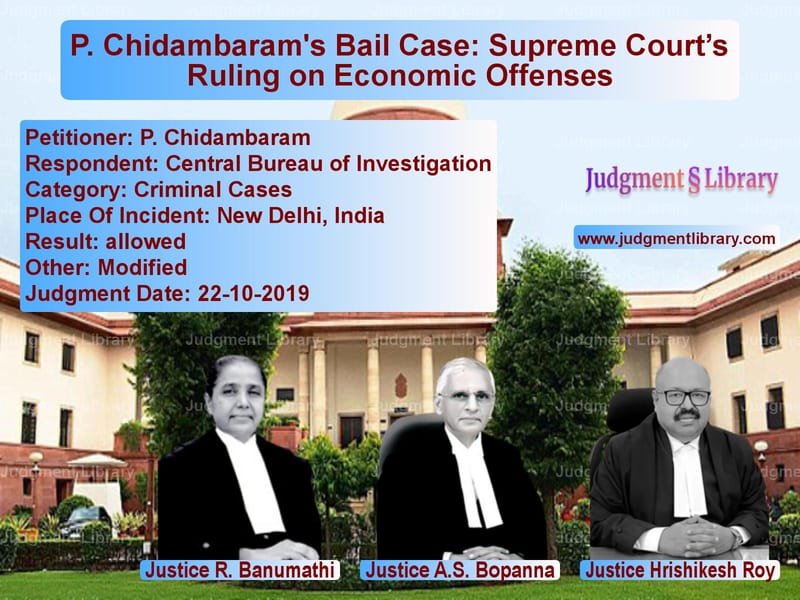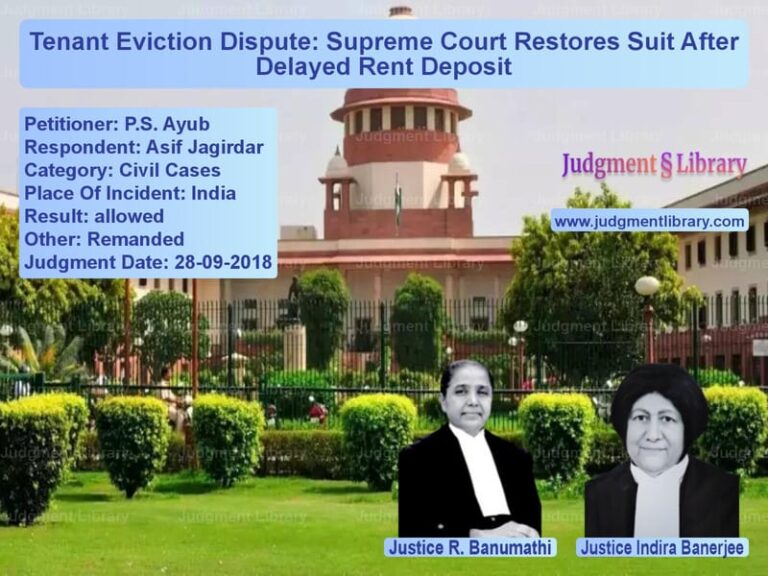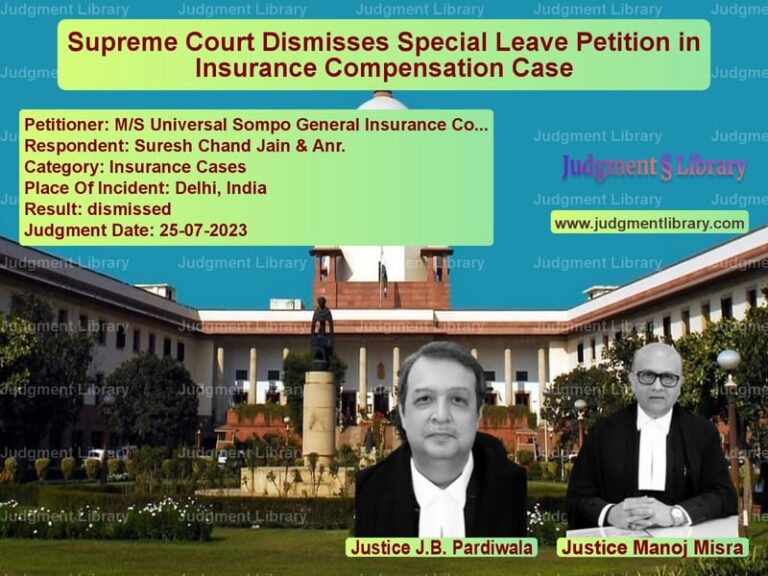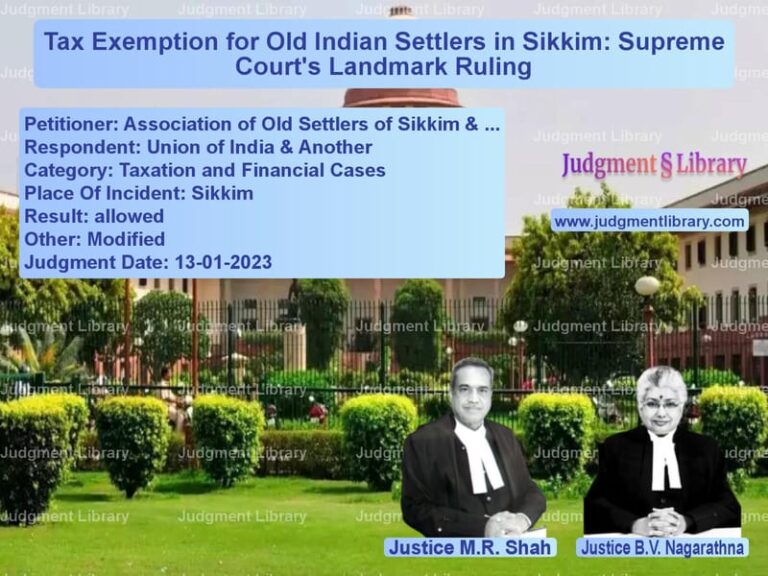P. Chidambaram’s Bail Case: Supreme Court’s Ruling on Economic Offenses
The case of P. Chidambaram vs. Central Bureau of Investigation revolved around the denial of bail to the former Finance Minister of India in connection with the alleged INX Media corruption case. The Supreme Court was tasked with determining whether the High Court erred in denying bail based on concerns of influencing witnesses, despite there being no flight risk or risk of evidence tampering.
Background of the Case
In 2007, INX Media Pvt. Ltd. sought approval from the Foreign Investment Promotion Board (FIPB) to receive foreign direct investment (FDI) of up to Rs. 4.62 crore. The FIPB, chaired by the then Finance Minister P. Chidambaram, approved the request. However, INX Media allegedly received foreign investments amounting to Rs. 305 crore—far beyond the approved limit—while also making downstream investments in its subsidiary, INX News, without requisite permissions.
The Central Bureau of Investigation (CBI) alleged that INX Media, upon being questioned by the Income Tax Department in 2008, entered into a criminal conspiracy with Karti Chidambaram (P. Chidambaram’s son) to secure favorable treatment from the FIPB. Allegedly, payments were made to shell companies linked to Karti Chidambaram to influence the approval process. The CBI charged P. Chidambaram with offenses under:
- Section 120B (criminal conspiracy) and Section 420 (cheating) of the Indian Penal Code (IPC)
- Sections 8 and 13(2) read with Section 13(1)(d) of the Prevention of Corruption Act, 1988
Key Legal Issues
- Whether P. Chidambaram was a flight risk and likely to abscond if granted bail.
- Whether there was a reasonable apprehension of him tampering with evidence.
- Whether there was credible material to suggest he could influence witnesses.
- Whether economic offenses require a different standard for granting bail.
Arguments of the Petitioner
Represented by Senior Advocates Kapil Sibal and Dr. Abhishek Manu Singhvi, P. Chidambaram’s legal team contended:
- There was no direct evidence against him except for statements of co-accused.
- He had fully cooperated with the investigation and had been in custody for two months.
- All relevant documents were already in government custody, eliminating the risk of tampering with evidence.
- The High Court relied on sealed cover evidence without disclosing its contents to the accused, violating the principles of a fair trial.
- Since the charge sheet had already been filed, keeping him in custody served no further investigative purpose.
Arguments of the Respondent (CBI)
The Solicitor General of India, Tushar Mehta, representing the CBI, countered:
- P. Chidambaram was a powerful politician with influence over government agencies and the potential to sway witnesses.
- The prosecution had collected witness statements that suggested efforts to suppress evidence.
- Several economic offenders had fled the country in the past, making a strong case for denying bail to prevent flight risk.
- The nature of economic offenses required a stricter approach to bail due to their impact on national interests.
Supreme Court’s Observations
The Supreme Court reviewed the bail rejection order of the Delhi High Court and made several key observations:
- The risk of tampering with evidence was minimal since all documents were already with the investigating agency.
- The High Court wrongly relied on the “sealed cover” evidence to reject bail without allowing the defense to respond.
- Economic offenses, while serious, do not automatically warrant denial of bail.
- The CBI failed to provide specific evidence proving that P. Chidambaram had directly attempted to influence witnesses.
Justice Banumathi, writing for the bench, noted:
“The prosecution must establish a real and imminent likelihood of witness tampering. Mere apprehension, without direct evidence, cannot be the basis for denial of bail.”
Final Verdict
The Supreme Court ruled:
- Bail was granted to P. Chidambaram, overturning the Delhi High Court’s ruling.
- He was required to surrender his passport and was prohibited from leaving the country without permission.
- He was directed not to contact or influence any witnesses.
- In case of any attempts to interfere with the investigation, the CBI could seek cancellation of bail.
Legal and Policy Implications
The ruling has significant consequences for handling economic offenses:
- Bail remains a rule, jail an exception: Even in economic offenses, courts must justify bail denial with strong evidence.
- Transparency in investigations: The decision curbs the overuse of “sealed cover evidence” in judicial proceedings.
- Flight risk must be proven: The court rejected a general argument that economic offenders have a higher flight risk.
Conclusion
The Supreme Court’s decision in this case reinforces the principle that bail should not be denied based on mere apprehensions but must be grounded in substantive evidence. While economic offenses are serious, procedural fairness must be upheld. This ruling serves as a benchmark for future cases involving allegations of corruption against high-profile individuals.
Petitioner Name: P. Chidambaram.Respondent Name: Central Bureau of Investigation.Judgment By: Justice R. Banumathi, Justice A.S. Bopanna, Justice Hrishikesh Roy.Place Of Incident: New Delhi, India.Judgment Date: 22-10-2019.
Don’t miss out on the full details! Download the complete judgment in PDF format below and gain valuable insights instantly!
Download Judgment: P. Chidambaram vs Central Bureau of In Supreme Court of India Judgment Dated 22-10-2019.pdf
Direct Downlaod Judgment: Direct downlaod this Judgment
See all petitions in Bail and Anticipatory Bail
See all petitions in Money Laundering Cases
See all petitions in Fraud and Forgery
See all petitions in Extortion and Blackmail
See all petitions in Judgment by R. Banumathi
See all petitions in Judgment by A. S. Bopanna
See all petitions in Judgment by Hrishikesh Roy
See all petitions in allowed
See all petitions in Modified
See all petitions in supreme court of India judgments October 2019
See all petitions in 2019 judgments
See all posts in Criminal Cases Category
See all allowed petitions in Criminal Cases Category
See all Dismissed petitions in Criminal Cases Category
See all partially allowed petitions in Criminal Cases Category







